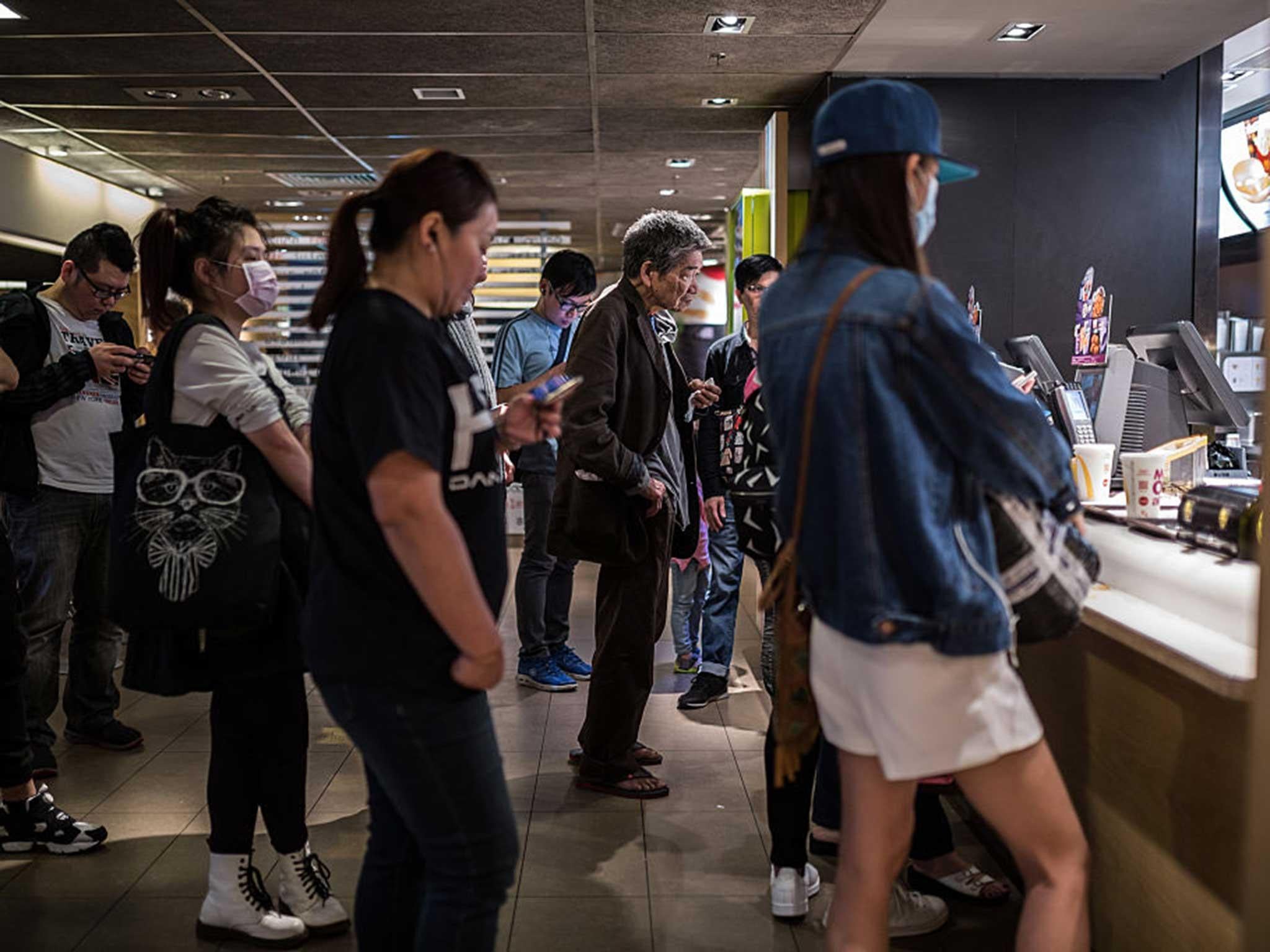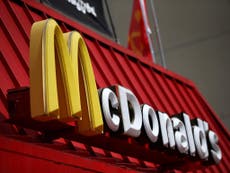If McDonald's food really is bringing the antibiotics apocalypse nearer, then only vanity can save us
It's not just about being worthy. It's also about not becoming a 28-stone human flesh mountain

How do we insist on fast-food restaurants improving their offer, and really thinking about what they encourage people to eat? One would have thought that this was the sunset era of such a story, since nowadays is surely the era of fast-food scepticism. We know that fast food is bad for us, and the stories of processed food horrors are now manifold. We’ve gone through the battery-farming scandal, the issue of saturated fats, the scandal of the overuse of sugar, the litter produced by such “restaurants”, the deforestation of the world to produce more and more beef, and even the presence (or otherwise) of actual rodents in the food chain.
Morgan Spurlock’s movie Supersize Me, during which the filmmaker ate only McDonald’s food for a 30-day period, and saw his body (and mind) go off the scale in the process, shocked the world more than a decade ago now. A few years ago, McDonald’s itself even warned its own staff about the risks of munching through the types of fast food available in their McCafes. But they all still carry on flogging their products, cars still pull up to the drive-in windows and children still flock to guzzle over their food at birthday parties.
The latest grim tale surrounding the fast food industry is that there are – guess what? – industrial amounts of antibiotics being used in the animals bred for the burger bar; so much so that their subsequent ingestion by humans is having a deleterious effect on our own health. Why antibiotics are used on healthy farm animals is a moot point; apparently they are used to prevent illness, not treat it, and – of course – promote growth.
According to the charity ShareAction, which hopes to achieve a worldwide ban on the practise, more than 70 per cent of all antibiotics used in the US are given to livestock. Of course, they end up in the human digestive tract, which gives rise to drug resistance, which gives rise to “superbugs” unafraid of any antibiotic one cares to use. It’s thought that more than 20,000 Americans a year are killed by superbugs, and there is now real talk of a “post-antibiotic era”, which should surely send shivers of fear down the collective spine of the World Health Organisation.
McDonald’s, the world’s biggest fast-food chain, has desisted from using poultry treated with antibiotics, but only in its US stores. The rest of us suckers who go to its 30,000 restaurants around the globe have to just put up with burgers drenched in antibiotics.
You’re no better off going to Wendy’s, KFC or the delightfully named Chick-fil-A, all of whom currently use chickens, pigs and cows showered in the stuff. All of these companies have promised to limit their use of human antibiotics in their chicken product – at some point in the future, that is.
What’s to be done? ShareAction has called on consumers to email the CEO of McDonald’s, UK-born Steve Easterbrook, but I can hardly see Easterbrook running for the hills after getting even 10,000 emails from anxious consumers (or more likely, informed middle-class people doing what they think is a worthy deed). Such campaigns work for action against activities such as force-feeding ducks for foie gras production in California; they seem like blue-sky thinking here.
More effective might be the reminder that eating burgers or chicken nuggets is a generally bad idea, and in this, one could insist on the obligatory viewing of a photograph of 28-year-old Australian Ellie Goodall, a human flesh mountain who recently lost more than 16st after stamping out her addiction to Big Macs, and who now weighs less than the amount of fat she successfully shed. “If I wasn’t eating it, I was thinking about eating it,” Goodall is quoted as saying. An average Goodall meal at Maccy D’s? “I’d eat three large Big Mac meals plus an extra portion of fries.” And supplement this with a bucket from KFC, apparently.
The story is whizzing around Twitter; the photographs of the colossal Goodall before her conversion to raw food and triathlons are salutary and might do more to halt the seemingly unstoppable progress of McDonald’s “supersize ambition” than more abstract concepts such as the presence of drugs in food.
Shouldn’t the governments of various nations club together to halt this Franken-farming practise? Well, the good old EU did actually ban the use of antibiotics as growth promoters as far back as 2006, but we know what many people think about EU “interference” across the board, and given that the ban has been running for a decade, it’s clearly not had an enormous effect.
I would warrant that no government feels able to fundamentally square up against giant, profitable multinationals such as McDonald’s, or KFC, whose parent company Yum Brands (oh, the irony) also owns Taco Bell and Pizza Hut. Just as with smoking, or drink-driving, government legislation can help, but in the end one needs an innate desire within a populace to change its habits – rather like a wheeling group of starlings changes its direction not from outside forces, but from the individual birds themselves. And vanity might be the best catalyst of all.


Join our commenting forum
Join thought-provoking conversations, follow other Independent readers and see their replies